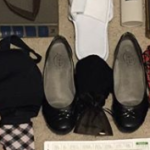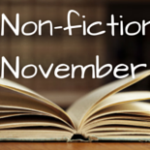Books have been being challenged and banned (and sometimes burned) since the concept of a book became known.
The reasons for banning books are numerous and varied, but generally they boil down to the fact that someone, somewhere doesn’t like the ideas contained in the book.
A simple search on any search engine will yield dozens of lists of banned books. There are lists of banned authors, lists of challenged children’s books, and a list of The 100 Most Frequently Challenged Books (1990-2000).
Combating banning
Read the banned books, of course! Talk about them, and convince others to read and talk about them as well.
I’m not advocating presenting a nine year-old with a copy of The New Joy of Gay Sex–certainly there are boundaries–but I see no problem with people reading books that contain controversial ideas.
The best way to destroy an idea is to make sure it’s forgotten; don’t let it happen.
What I’ll be doing
Turns out I’ve already done lots to commemorate Banned Books Week. I actually read most of these in high school — as part of my English classes. Guess my high school was pretty liberal when it came to banning books.
- Animal Farm – Banned by the Soviet Union in 1950, as Stalin understood that it was a satire based on his leadership. Nearly banned by U.S.A and U.K in the early 1960s during the Cuban Missile Crisis. It was not until 1990 that the U.S.S.R legalized the book and it was re-released after editing.
- The Da Vinci Code – Banned in Lebanon after Catholic leaders deemed it offensive to Christianity.
- The Diary of Anne Frank – Banned in Lebanon for “portraying Jews, Israel or Zionism favorably.” Challenged in the US because of sexual content and homosexual themes.
- The Grapes of Wrath – Temporarily banned in many places in the US. Banned in the region of California in which it was set because it made the residents of the region look bad.
- Nineteen Eighty-Four – Quite often banned because of its “immoral” topics and “pro-communist” ideas.
- Not Without My Daughter – Banned in Iran. It created furor in Iran for showing the general conditions there in bad light as well as for being critical of Iranian Islamic customs.
- To Kill a Mockingbird – Has been subject to campaigns for removal from public classrooms, often challenged for its use of racial epithets.
- Twilight series – The Twilight series has been challenged for being “unsuited to age group,” “sexually explicit” and because of its “religious viewpoint
- Catcher in the Rye – Challenged in the US because of sexual themes, homosexual themes, and offensive language.
- Flowers for Algernon – The reasons for the challenges vary, but usually center around those parts of the novel where Charlie struggles to understand and express his sexual desires. Many of the challenges have proved unsuccessful, but the book has occasionally been banned from school libraries, including some in Pennsylvania and Texas.
- Harry Potter series – Challenged (and burned) in the US and other countries because of the series’ focus on the practice of witchcraft.
- Huckleberry Finn – Challenged in the US because of the use of the word “nigger.”
- One Flew Over the Cuckoo’s Nest – Challenged in the US “vulgar language, sexual explicitness, or violent imagery that is gratuitously employed.”
- The Awakening – Written in 1899 and promptly vilified. The book was criticized for being immoral and scandalous. After this novel was met with such scathing reviews, Kate Chopin never wrote another novel. The Awakening is now considered an important work in feminist literature.
- Fahrenheit 451 – Challenged in the US because apparently no one noticed the irony of banning a book that warns against censorship and the banning/burning of books.
- Frankenstein – Banned by the Apartheid government in South Africa in 1955 for being “indecent” and obscene.”
- The Scarlet Letter – Censored on sexual grounds. The book has been challenged under claims that it is “pornographic and obscene.”
- Gone With the Wind – Challenged in the US because of its sexual overtones and racist language and behavior.
Since I’ve clearly done my share of banned book reading, I’ll actually be commemorating this week by reading a book about censorship itself.
In 2008 author Mary Roach wrote a book about some of the most censored individuals: sex researchers.
The book, Bonk: The Curious Coupling of Science and Sex, has not been banned or challenged anywhere that I know of, but since its topic is a touchy one (ha!) and many of the researchers she discusses and interviews have themselves experienced various forms of censorship, I thought it would be a good way to celebrate my freedom of choice.
Have you read any books that were challenged or banned? Did you read them before or after you knew about their status? What banned book are you going to read this week?





